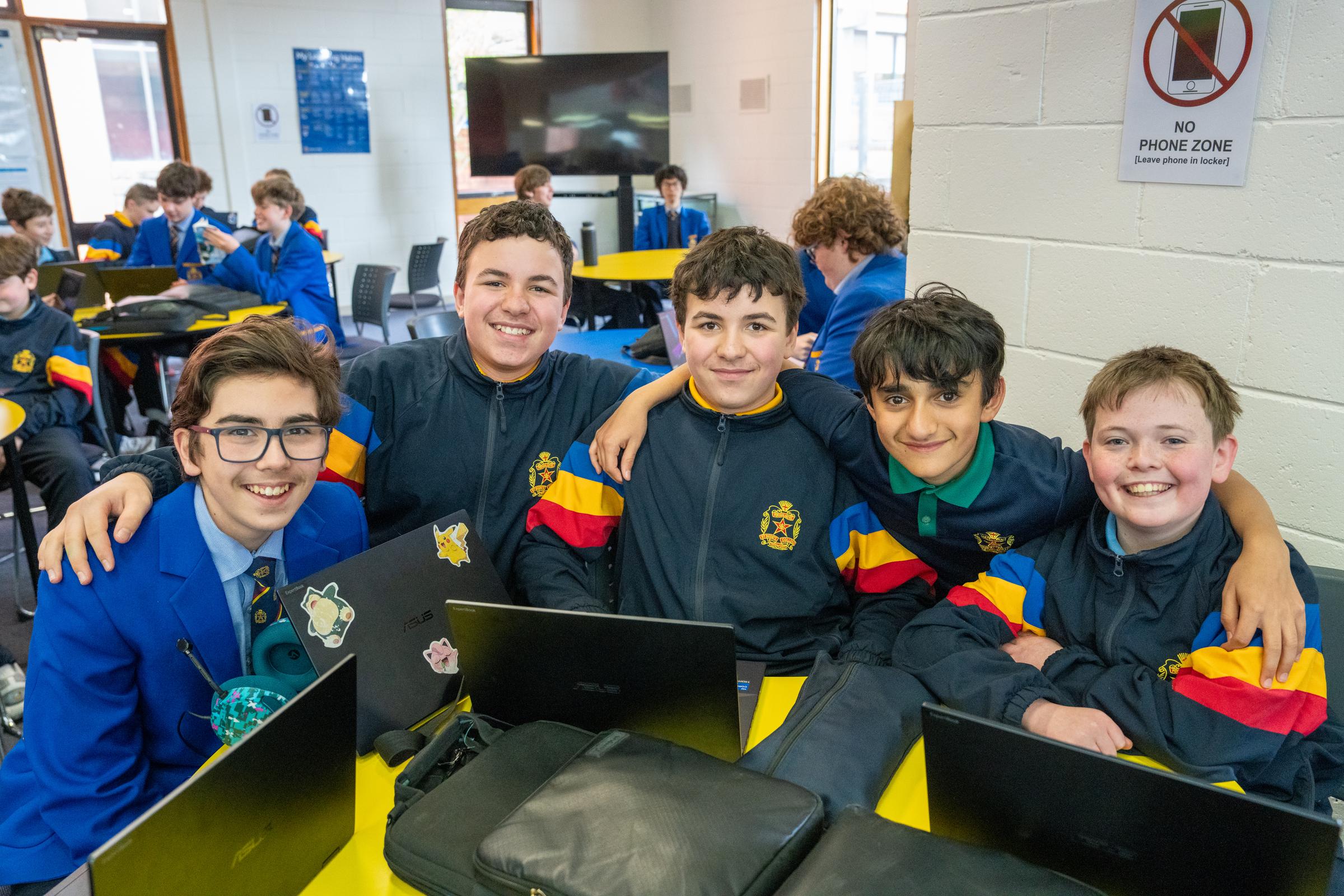Student Wellbeing

Building Healthy and Respectful Relationships
We know that learning is more than the content that is covered in or out of a classroom - it is also about relationships. The way our young people interact with one another has a powerful impact on their wellbeing, confidence, and sense of belonging. Developing the skills to create and sustain positive, respectful connections is one of the most valuable parts of their growth into adulthood. Supporting our students with relationship skills is a value we prioritise at St Bede's College.
A healthy relationship is one that is built on mutual respect, kindness, and understanding. It is not about everyone being the same or always agreeing; rather, it is about valuing each person’s unique qualities and treating one another with dignity. Friendships, family connections, and even classroom dynamics all benefit when students practise empathy and patience.
Accepting Differences
In a wonderfully diverse community like ours, students encounter people with different opinions, backgrounds, and personalities every day. This can be a source of strength. When young people learn to appreciate and respect differences, they expand their perspectives, discover new ideas, and develop greater empathy. A difference of opinion does not have to be a source of conflict; it can instead be a chance to grow and learn.
Encouraging our students to listen without judgement, to ask questions rather than assume, and to respond with curiosity instead of criticism helps create a more inclusive environment. This mindset fosters resilience too because in the wider world, they will meet people from all walks of life.
Respectful Communication
Disagreements and misunderstandings are inevitable in any relationship. How we handle these situations is what makes the difference. Respectful communication is the key. This means:
- Taking the time to listen fully before responding.
- Speaking calmly and clearly, without aggression.
- Expressing feelings honestly but with consideration for how they may affect others.
- Being willing to compromise or find common ground.
These are not always easy skills, but they are powerful ones. When students practise respectful communication, they are more likely to resolve conflict in ways that strengthen, rather than weaken, their relationships.
When Behaviour Becomes Harmful
Sometimes, unfortunately, interactions can move beyond disagreement and become harmful. This can take the form of exclusion, repeated negative comments, intimidation, or making someone feel unsafe. Such behaviour can damage a person’s self-esteem and wellbeing and undermine the sense of trust in our community.
We encourage our students to be proactive, both in looking after themselves and in supporting one another. If they experience or witness behaviour that crosses the line, they should know it is always appropriate to seek help from staff members. Speaking up is a sign of strength, not weakness. It helps ensure that every student feels respected and valued.
The Bigger Picture
At its core, building respectful relationships comes down to a simple principle: treat others as you would like to be treated. When our students act with kindness, empathy, and fairness, they not only strengthen their friendships but also shape the culture of our College. They create a place where every student can learn, grow, and thrive.
These skills go far beyond the school gates. The ability to communicate respectfully, manage differences constructively, and stand up for what is right will guide our young people well into their adult lives, whether in their future workplaces, families, or communities.
As we continue to nurture these qualities in our students, we also invite parents and carers to conciously model and reinforce them at home. Conversations around respect, empathy, and communication (both the successes and the challenges) can be powerful teaching moments. Together, we can help our young people develop into respectful, resilient, and compassionate adults.
The Benefits Of Counselling
What College Counselling Offers
Our service is a confidential, professional and inclusive resource for all students from Years 7 to 12, across both campuses. College Counselling is tailored to each specific student and can be offered one-on-one or in a group context. Support can also last from a ‘one-off’ session to weekly/ongoing appointments.
It is designed to provide support for a range of issues, including but not limited to:
- Managing stress and academic pressures
- Building self-esteem and resilience
- Navigating friendships and social dynamics
- Coping with family changes or personal challenges
- Addressing feelings of anxiety or sadness, and many more
How Students Can Access Counselling
- Self-referring to the Wellbeing Coordinator counselling@stbedes.catholic.edu.au
- Drop-in to our Wellbeing Office at our Mentone Campus (near the Chapel gardens)
- Requesting a referral from their Homeroom/Tutor Group teacher, Year Level/House Coordinator on their behalf
- Requesting a referral from their Parent/Guardian on their behalf (either via counselling@stbedes.catholic.edu.au or 9582 5999)
How Families Can Support
As parents and carers, your role in your child’s wellbeing is invaluable. Some ways you can assist your child include:
- Helping them establish a balanced routine that includes time for study, relaxation, and hobbies
- Encouraging healthy sleep habits and a nutritious diet to support their overall wellbeing
- Being attentive to changes in their behaviour or mood, and gently ask how they are feeling if and when you notice any changes
- Promoting positive self-talk and help them set realistic goals for themselves
- Modelling healthy coping strategies, such as managing stress or problem-solving constructively
- Celebrating their achievements, no matter how small, to boost their confidence
- Encouraging open conversations about their feelings and experiences – but accept and understand if and when they may not want to open up to you (if this is the case encourage them to seek help elsewhere)
- Encouraging and reassuring them that seeking support is a sign of strength, not weakness
- Staying informed about the services and resources the school offers
Navigating The Online World - Free Webinars
Supporting our young people to stay safe online can feel overwhelming as the digital world continues to evolve. The eSafety Commissioner is offering a series of free webinars for parents and carers, providing practical information and strategies on key topics impacting teens.
These sessions are designed to equip families with up-to-date knowledge and tools to help young people make safer choices online.
- Understanding AI companions: What parents and carers need to know
- Sexual extortion: What parents and carers need to know
- AI-assisted image-based abuse: Navigating the deepfake threat
- Algorithms and adolescents: The rewards and risks of recommender systems for young people
Book your free webinar at https://www.esafety.gov.au/parents/webinars
The Common Ground Parent Sessions
The Parent and Carer sessions for The Common Ground are available for you to view online at your convenience via the links below
The Common Ground: Future Fit Masculinities - Years 10 to 12
The Common Ground: Future Fit Masculinities- Years 7 to 9
We appreciate every family collaboration and commitment with our College to support our students to do their personal best.
